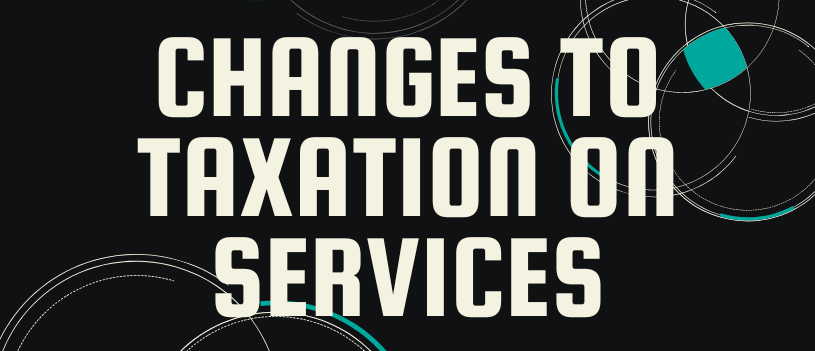As our country shifts from a manufacturing based economy to a service-based economy, more and more states have begun implementing taxation on select services. This year we could see an increase in taxation on services as Indiana and Nebraska are looking to pass new legislation changing the taxability of services. As these two states make major changes, it is likely that additional states will soon follow their lead.
There is now an Indiana bill seeking to tax sales of services and discontinue corporate income tax. If the new Senate Bill 372 becomes law, then the sales tax in Indiana would apply to a majority of services starting January 1, 2023. The bill also attempts to decrease individual income tax rates and to phase out the Indiana corporate adjusted gross income tax.
Now the question is what services would be considered tax exempt beginning in 2023 for this state? Any government services and any services that are rendered by an employee would be considered exempt. Lastly, business-to-business (B2B) transactions would be exempt as well. All other services will be subject to a 7% tax. Essentially, the tax will extend to “any activity engaged in for another person, if the person purchases the service as the end user of the service for consideration.” By extending the state’s 7% sales and use tax, the bill’s fiscal analysis estimates an estimated net impact of $1,936.2 million to $2,204.2 million for 2023.
Nebraska, on the other hand, will begin taxing services starting October 1, 2022. The state had a 2021 bill carried over to 2022 which will broaden sales tax to services while lowering the state sales tax rate. LB 422 states that all services are taxable unless there is a specific sales tax exemption. The state defines “service” as “all activities that are engaged in for other persons for a consideration and that involve predominantly the performance of a service as distinguished from selling or leasing tangible personal property.” Nebraska does exclude services that are rendered by an employee for his or her employer.
As previously stated, there are additional states that are attempting to follow in Indiana and Nebraska’s footsteps such as Texas and West Virginia.. Today, the only states that do not tax specific services are Hawaii, New Mexico and South Dakota. As the country begins to tax more services, it is important to note why taxing services can be difficult. The complicated part of tax policy changes is that states are not estimating how the amount of tax a different rat will produce versus the current tax. Essentially, the states are only balancing out who bears the tax burden. Unfortunately, states will find that this idea will be opposed by businesses, tax collectors, and individuals who purchase many services. Those who find income taxes more favorable for balancing tax burden will also be opposed to this new method.
Overall, we could see new proposals for taxing services in 2022 and 2023 as more states try to follow Indiana and Nebraska’s lead. We will have to wait and see if the states implement these tax changes as there are many parties opposed to this new method.
